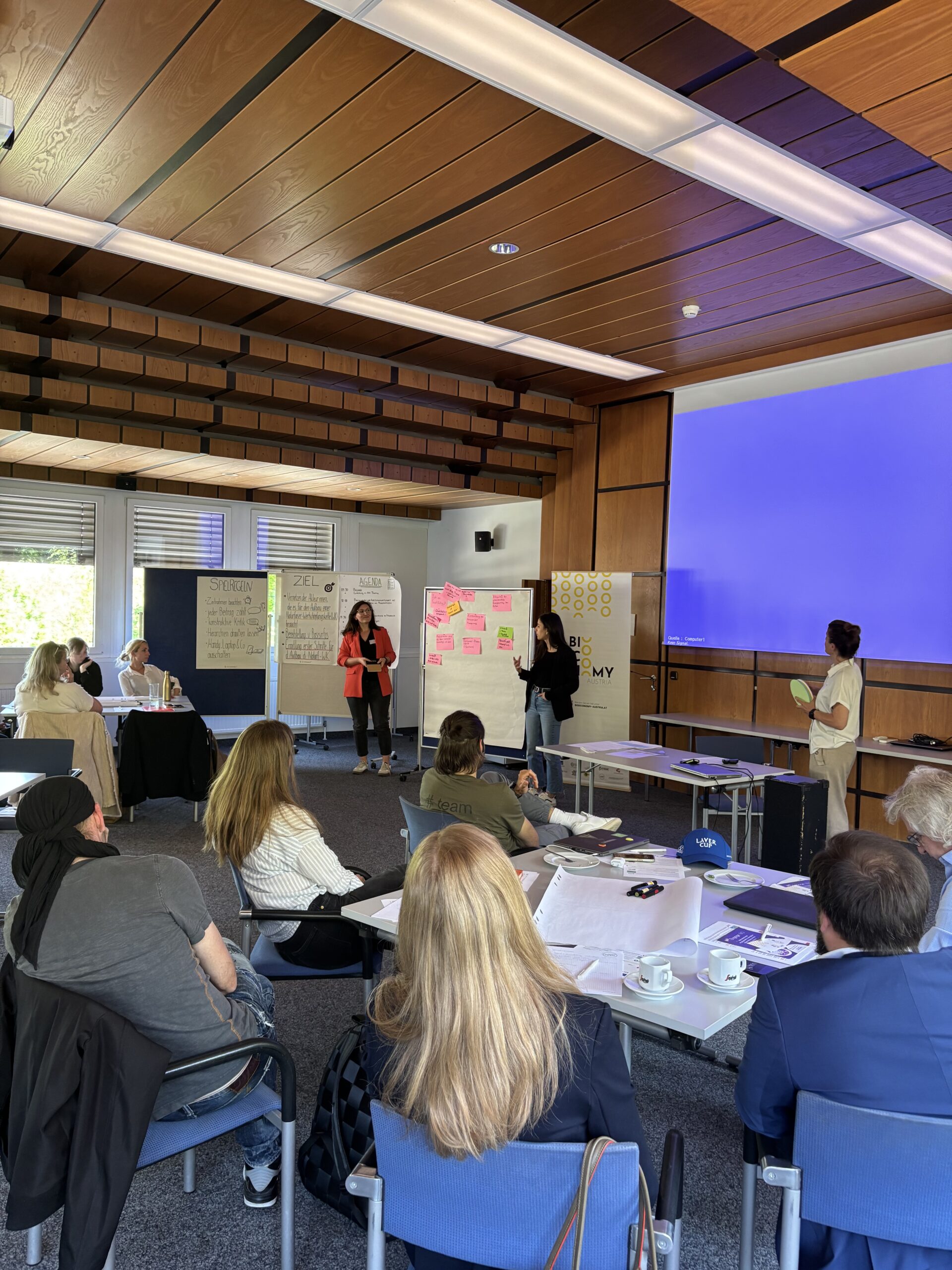“In order to create a regional supply of natural fibres, genuine collaboration across the entire value chain is needed,” said one participant at the natural fibre event held on April 28 at the Chamber of Agriculture of Upper Austria. The willingness to establish and use a regional supply of natural fibres is there – but so are the challenges. Most parts of the value chain were represented, from agriculture through processing to companies producing or using fibre products. Only processing plants that break down raw fibres into usable components were missing – presumably because such facilities no longer exist in the region.
The day began with expert inputs: Günter Wuzella (Wood K plus) provided insights into natural fibres, explaining how short, medium, and long fibres can be applied in a wide range of areas. Afterwards, Maria Strasser (Austrian Federal Economic Chamber) and Olivera Gracanin (Business Upper Austria) presented legal and financial framework conditions.
Practical examples were provided by Dominik Füglistaller (Swissflax) and Valentine Troi (Tyrol). Füglistaller demonstrated how production and processing can succeed despite small quantities and missing regional processing steps, emphasizing the importance of security for farmers and raising awareness. Troi described the attempt by the tourism association and Tyrolean business agency to produce a cap “100% made in Tyrol.” Major challenges included missing processing steps for hemp, fibre quality, and further processing.
In the workshops, participants focused on three key topics:
Regionality
Challenges include ensuring continuous availability of natural fibres with consistent quality, insufficient funding, the decline of farms, and limited cultivation areas. Especially in the initial phase, awareness raising, financial support, and collaboration along the entire value chain are essential. Participants also discussed how climate change could impact the cultivation of hemp and flax.
Education & Public Relations
The central issue is the lack of training opportunities – from courses for farmers to vocational training for workers and awareness programs for consumers. Education should start early, for example with a “textile education” in schools covering sustainability. The lack of training is also linked to low wages in the textile sector. Necessary measures include inspiring young people (e.g., through company and farm visits), joint initiatives to promote textile professions, active networking, and regular meetings of committed stakeholders.
Economic Viability
The main challenges are high production and transport costs, linear thinking, and low demand. Additional barriers are differing industry requirements, a lack of regional structures, and the complex development of new products, which together hinder full use of the plant. Proposed solutions include eco-modulations, reliable framework conditions for farmers, regional processing technologies, and structures that enable comprehensive plant utilization. Current obstacles remain a lack of knowledge, missing cooperation, insufficient technologies, and unresolved cost distribution.
In conclusion, participants expressed a strong wish to continue the exchange. Business Upper Austria (Cleantech and Building Innovation Cluster) also emphasized the importance of strengthening regional value creation in Austria – going beyond recycling and end-of-pipe solutions – and is now developing a follow-up format. Those interested in actively contributing are invited to contact Michaela Streicher (michaela.streicher@biz-up.at) or Isabella Mantello (isabella.mantello@biz-up.at).
The event was organized in cooperation between the national project Bioeconomy Austria and the EU Horizon project Engage4Bio.
